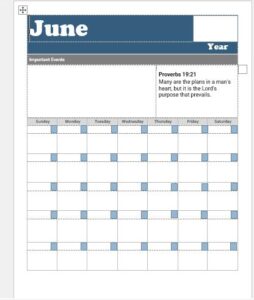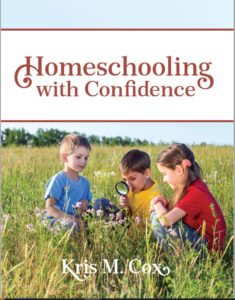As we began homeschooling, I remember thinking that I needed to do things right! I wanted our kids to have the best education possible.
I bought little metal desks for the two oldest kids (ages 6 & 4) to do their school work in. I bought all the workbooks and the teacher’s guides and we sat and worked through them together each day. As we worked, our two toddlers were often busy getting into things. I struggled to keep up with it all!
It didn’t take long for me to feel overwhelmed and frustrated. In fact, by October of that first year of homeschooling, I became sick with mono.
Thankfully, a friend came along side me and gave good advice: homeschooling is more of a lifestyle, not just an educational method. She assured me that I could rest while I was sick, and take time off school while I needed to heal. “Have the kids lay in bed with you and read fun children’s books to them.” She said.
And that’s what I did. It was a great bonding time! Plus, I learned later that reading aloud to your children helps build literacy skills. We continued having read aloud time throughout all the years of our homeschooling!
That year I learned that it didn’t work well to try to imitate the public school (and my kids didn’t enjoy it either)!
I’d like to help others avoid some of the mistakes that I made that first year (and in subsequent years)…
I’m going to share with you how to avoid the 4 most common homeschooling pitfalls (and some apply to general parenting too):
Don’t try to imitate the public school:
Homeschooling truly is more of a lifestyle of learning. You don’t need little metal desks! Sit at the kitchen table, or on the couch, or even on the floor while you teach and learn! And you don’t need to have your children sitting for 6-8 hours working on school work. (that’s a good way to cause burnout!)
Young children need short teaching times, give them stretch breaks every 10-15 minutes. They need the breaks to get their brains to focus again. Also, they learn best by playing games, doing activities, and singing songs, not by using workbooks. A workbook here and there is okay, and some children do enjoy filling in the little blanks, but you can teach most of what a Pre-K or Kindergartener needs to know without workbooks.
Homeschooling doesn’t take as much time because we’re not trying to corral 30 six-year old children all day, we just have our own children. We can complete all the school work for kindergarten in a ½ hour. In the elementary years, you can finish most focused academic work in just an hour or two. Middle school and high school might require a little more time, but it usually won’t take all day. And remember to take breaks to re-focus!
The rest of their education takes place through daily life. There are so many opportunities in a day to teach important skills and values, to work on character and help our children understand the world that God created!
Have them help with chores around the house, and teach them how to cook, clean and maintain a home.
Take them with you to the grocery store and teach them how to look at ingredients and choose the best foods, or how to watch for sales, and save money.
Teach them their colors and about matching while you sort socks. By age 10 they can even be doing their own laundry! (What a relief that was for me! With four kids, my laundry piles were insurmountable at times!)
When they ask “why?” or “how does this work?”, take the time to explain things to them, or help them find the answers. Teaching them to find the answers empowers them to be lifelong learners!
Read living books to them, and then help them explore topics within the books that interest them. For example, as we read the book, “My Side of the Mountain”, our boys were interested in knowing more about falcons, so we went to the library and got books on falcons. It was a great learning experience! (see my post on great books for kids for some book suggestions)
I hope you get the idea…watch for learning opportunities and take advantage of them. Using curriculum is helpful, and you will probably need some, but you don’t have to imitate the public school.
As you make learning part of your lifestyle, your children will become avid learners, looking for opportunities to learn about things that interest them.
Don’t compare yourself to others:
We all do this! So-and-so tells us how wonderful their child is doing in a certain activity, and we wonder if we should get our child in that activity too. Or another mom talks about how perfect the curriculum they’re using is, and we think we should consider switching to that curriculum too.
Or we observe one family’s children and decide we’re a failure because our children aren’t as well behaved as theirs.
Comparing ourselves to others usually leads to one of two things:
- Discouragement: because we feel like we don’t measure up or we’re failing in some area.
- Pride: because we think we’re doing a better job than the other person, and we get a little puffed up! We forget that it’s only by the grace of God that we are where we are!
Guard against comparing yourself or your children to others!

Instead, seek God for what you need to do in your family, and in your homeschool, and trust Him to give you the direction you need.
Let Him be your guide, rather than being swayed this way and that by what others are doing.
Guard against being overcommitted:
Our society today places a lot of value on excelling in sports or the arts or academics. There’s great pressure on parents to have their children in preschool, or community sports, or music lessons, or outside classes. While these things are good, we can overload our children’s calendar and stress them out!
When they’re stressed out, they often have attitude problems, or they don’t do as well in their school work. Instead of overloading our children with activities and classes, look for things that will help build character and help them grow in their faith. Allow each child to be in only one activity outside the home at any given time, and then gradually add on more, if you feel you can handle it.
And we as parents can also become overcommitted. People think that because we’re home with our children, we have extra time and so they ask us to help. Maybe it’s a volunteer position at church, or in co-op, or there’s a family in need. While these things are also good to be involved in, we can become overcommitted with outside responsibilities, and our children and homeschooling suffer. If this sounds like you, (this was me!), then you need to learn to say “no” sometimes!
Avoid getting so wrapped up in the academic side of things that you forget about building character and focusing on spiritual growth:
The pressure to have our children up to grade level and doing as well as we perceive the public school children are doing (or as well as the grandparents think our children should be doing!) can be overwhelming at times. And we put a lot of pressure on ourselves regarding this as well.
It is important, but…
We can get so focused on the academic piece of homeschooling that we forget that one of the best parts of homeschooling is that we get the privilege of incorporating character building opportunities into their lives as well. And that we’re also training up our children to love and know the Lord with all their heart, soul and mind.
Most homeschoolers know this and have this as their focus, but there can be times when we can get so wrapped up in teaching academics and doing outside activities, that we miss opportunities to teach spiritual truths or to work on a character issue.
Ask the Lord to help you keep spiritual growth and character building as a high priority in your day, ask Him to show you the opportunities so you don’t miss them.
If you’re struggling with one or more of these pitfalls and you need prayer or advice on how to remedy things, please send me a message. Or if you can think of other mistakes that you’ve made that you’d like to help spare others from making, please share them here. We can help each other to stay on the right path as we share our lessons learned and pray for one another.
Blessings to you,
Kris








With a severely disabled teen, 3 younger boys, and 4 adult children living with us to take care of their disabled brother, I have often been finding my that my calendar has 2-3 appointments or other commitments written in each week. In February, I counted out that for the 17 week days, 9 of them had appointments. It is a ridiculous schedule. So I made a resolve to book no more than 4 days of appointments a month. I need to be home in order to homeschool.
Susan,
It sounds like you have a very busy life! What a blessing that your adult children are there to help you with caring for your disabled son. That’s a great decision to reduce the number of appointments per month, I pray that will help in reducing your stress and will be a blessing to your homeschool life. Thanks for sharing your decision! May the Lord bless you and your family.